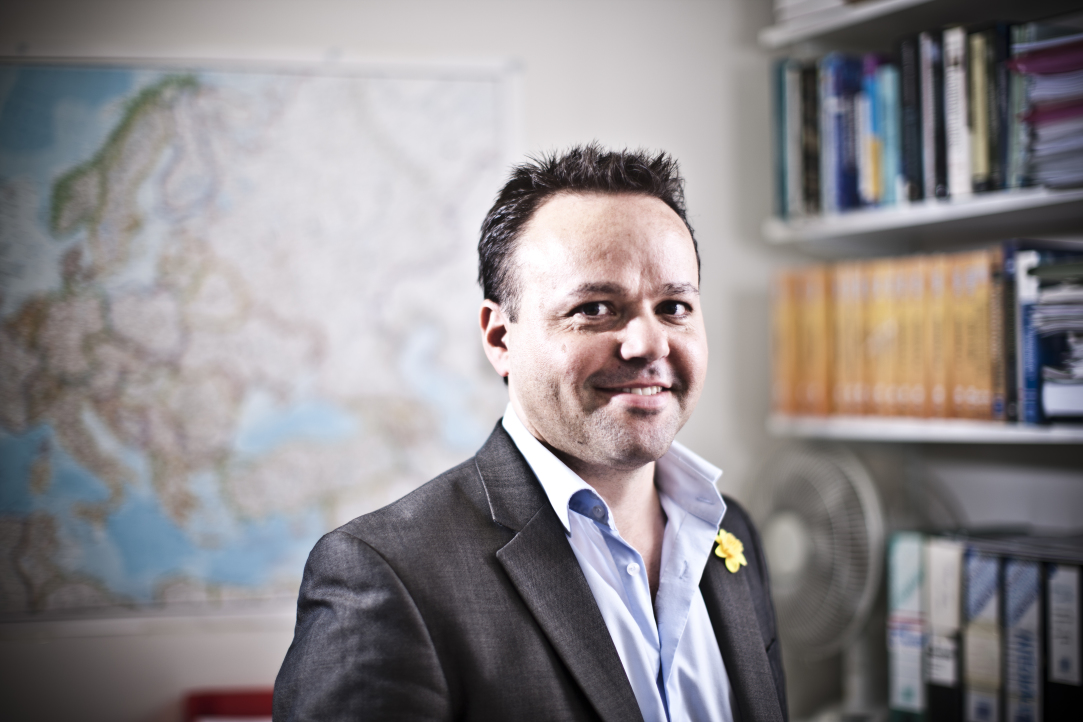
Social Scientists Reveal Structure of AIDS Denialist Online Communities
HSE researchers examined the structure of online communities of Russian AIDS denialists – people who deny the reality of HIV and AIDS – and the manner in which they spread their ideas. The findings are published in American Behavioral Scientist.

Centre for Health Economics, Management and Policy Marks Two Years
Centre for Health Economics, Management and Policy - or CHEMP, as it is known - was launched two years ago. Today CHEMP offers a unique opportunity to unite and internationalize the emerging body of education and research in the field of health studies. CHEMP’s Director Professor Christopher Gerry, Chair of Internationalisation Steering Group and Academic Adviser to Faculty of Social Sciences and Humanities at HSE St. Petersburg, provides an update on the Centre’s activities and achievements.
HSE Hosts Fifth International Summer School on Higher Education Research
In mid-June 2017, the town of Pushkin near St. Petersburg, Russia welcomed the Fifth International Summer School on Higher Education Research, a joint initiative between the HSE Institute of Education and Peking University’s China Institute for Educational Finance Research. This year, the Summer School focused on higher education and social inequality.

Decision-making Rules Least Susceptible to Manipulation, According to Science
HSE researchers have used computer modelling to demonstrate the varying manipulability of decision-making procedures and to identify those least susceptible to manipulation. Their findings are published in the paper 'Manipulability of Majority Relation-based Collective Decision Rules'.

How Corporate Values Affect Bank Profits
According to international studies, values can impact corporate performance and the bottom line either directly or indirectly. In the paper 'Corporate Values and Profits of Commercial Banks: Correlation with Profits', Elena Prosvirkina and Nikolai Prosvirkin have examined the corporate values commonly declared by Russian banks and found that the widely held values of customer focus and efficiency can bring competitive advantage, but do not impact financial performance directly.
How Alcohol Affects Life Expectancy
Widespread consumption of toxic surrogate alcohols is not the only cause of lethal alcohol poisoning in Russia; even more important may be the country’s ‘culture of drinking'. This habit of drinking large quantities of strong spirits – such as vodka, brandy or whiskey – often leads to dangerous intoxication and early death.
Fulbright Scholar on Working and Living in Moscow
HSE’s Faculty of Law is a partner of the Fulbright Scholar Programme and each year has the opportunity to host a Distinguished Chair in Sustainable Development. David Wirth, a Professor who teaches and supervises research at Boston College Law School, arrived at HSE in this capacity in September 2016 and spent the past academic year in Moscow. He has talked to HSE News Service about his impressions.

What Civil Servants Want
In Russia, the job of a public official is one of the least transparent to the public: more than 50% of Russians assume that 'people in power' are concerned only with their own material wellbeing and careers. Yet the civil servants' own perspectives on the meaning and priorities of their occupation are vastly different from these popular assumptions.
Complex Issues of Identity in the Former Soviet Union Countries
The HSE Institute for Social Policy held an event entitled ‘Demographic Challenges of the 21st Century’ on 13 June 2017. At the event, Lauren Woodard, PhD candidate, Department of Anthropology, University of Massachusetts, presented her report ‘Politics of Return: Resettlement of Compatriots Programme in Primorsky Territory’. Here she talks to HSE News about the event, her research, and her interest in the complex issues of identity in Russia and the Former Soviet Union.
-%D0%B7%D0%B0%D0%B2%D0%BE%D0%B4%20%D0%B8%D0%BD%D0%BD%D0%BE%D0%B2%D0%B0%D1%86%D0%B8%D0%B8.jpg)
Russia’s Innovation Powerhouses
HSE released its fifth Russian Regional Innovation Ranking, based on the 2015 findings, at a press conference hosted by TASS. Almost half Russia’s regions are relatively stable in terms of innovative development: their positions in the ranking have not changed significantly.

